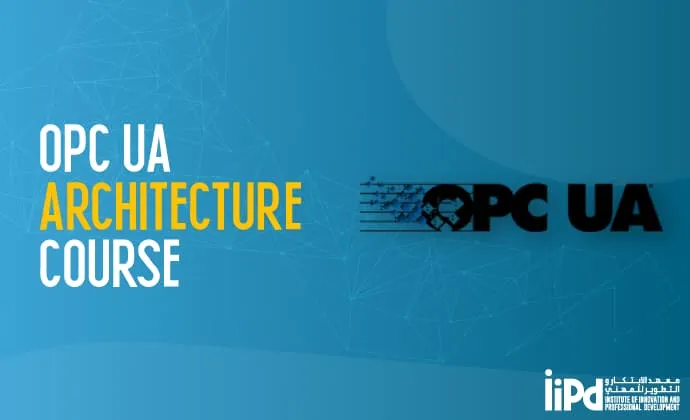
Course Details
This two-day course provides a comprehensive understanding of the OPC UA (Open Platform Communications Unified Architecture) from its foundational concepts to its advanced functionalities. Participants will delve into the architecture, principles, components, and applications of OPC UA. Through a series of lectures, demonstrations, and hands-on exercises, participants will gain the knowledge and skills necessary to design, implement, and troubleshoot OPC UA-based systems.
| Duration | 2 Days |
| Mode | Onsite |
| Location | Riyadh, Doha, Dubai |
Day 1: Foundations of OPC UA
Session 1: Introduction to OPC UA
- Overview of OPC UA history and evolution
- Comparison with previous OPC standards (OPC Classic)
- Key features and benefits of OPC UA
Session 2: OPC UA Architecture Overview
- Client-Server architecture model
- Layers of OPC UA architecture (Transport Layer, Secure Channel, Session Layer, etc.)
- Communication models (Point-to-Point, Pub-Sub)
- Role of Information Modeling in OPC UA
Session 3: OPC UA Information Modeling
- Introduction to Nodes, Objects, and Variables
- Understanding the Address Space
- Data Types in OPC UA
- Role of OPC UA Information Modeling in System Design
Session 4: Security in OPC UA
- Overview of OPC UA security features
- Encryption, authentication, and authorization
- Security policies and endpoints
- Best practices for securing OPC UA systems
Day 2: Advanced OPC UA Concepts
Session 5: OPC UA Profiles and Companion Specifications
- Overview of OPC UA Profiles
- Role of Companion Specifications in standardizing OPC UA applications
- Examples of existing OPC UA Companion Specifications
Session 6: OPC UA Communication
- Transport protocols (HTTP, HTTPS, TCP, UDP)
- Introduction to Binary Encoding
- Configuration of communication settings
- Handling network disruptions and timeouts
Session 7: OPC UA Discovery and Redundancy
- Introduction to Discovery Services
- Redundancy in OPC UA systems
- High Availability configurations
- Failover mechanisms
Session 8: OPC UA Best Practices and Troubleshooting
- Common pitfalls in OPC UA implementations
- Performance optimization techniques
- Troubleshooting techniques and tools
- Case studies and real-world examples
Outcome:
By the end of this course, participants will:
- Understand the fundamental principles and architecture of OPC UA.
- Be familiar with OPC UA information modeling and security features.
- Gain insights into advanced OPC UA concepts such as profiles, communication, and redundancy.
- Acquire practical skills in designing, implementing, and troubleshooting OPC UA-based systems.
- Be equipped with the knowledge to make informed decisions regarding OPC UA adoption and integration in their respective industries.








